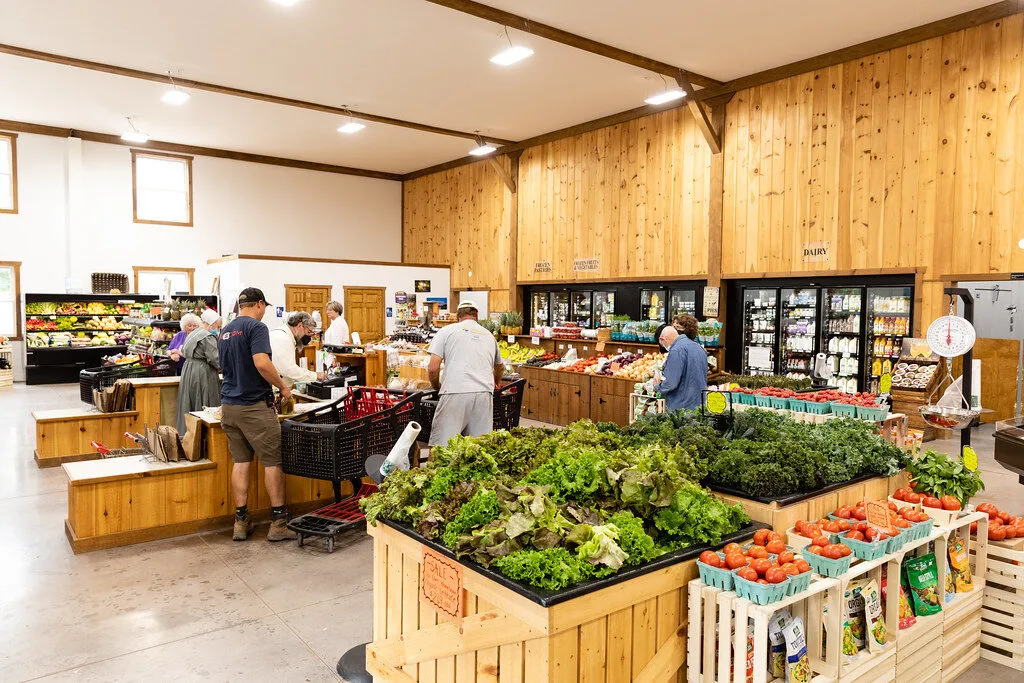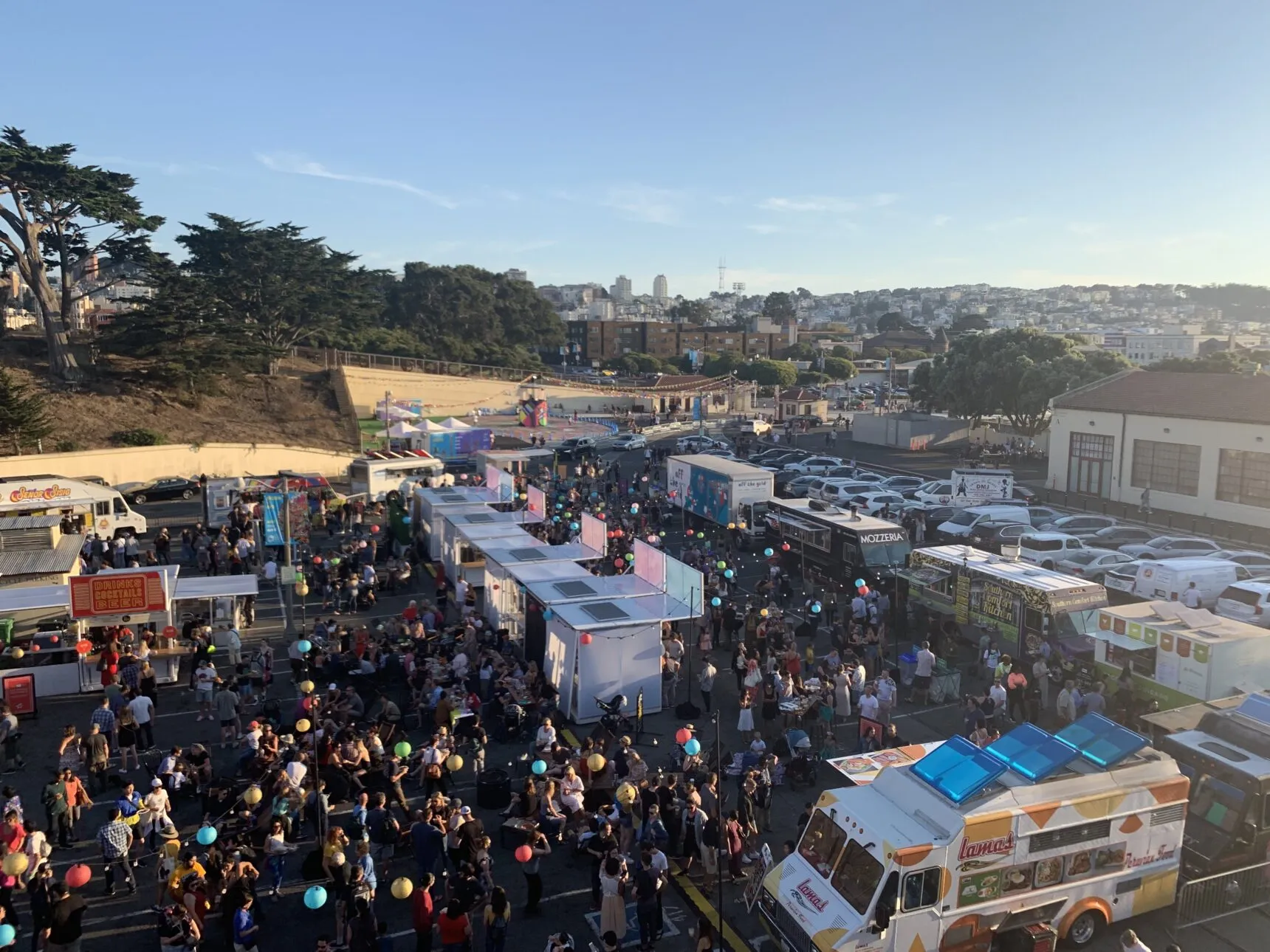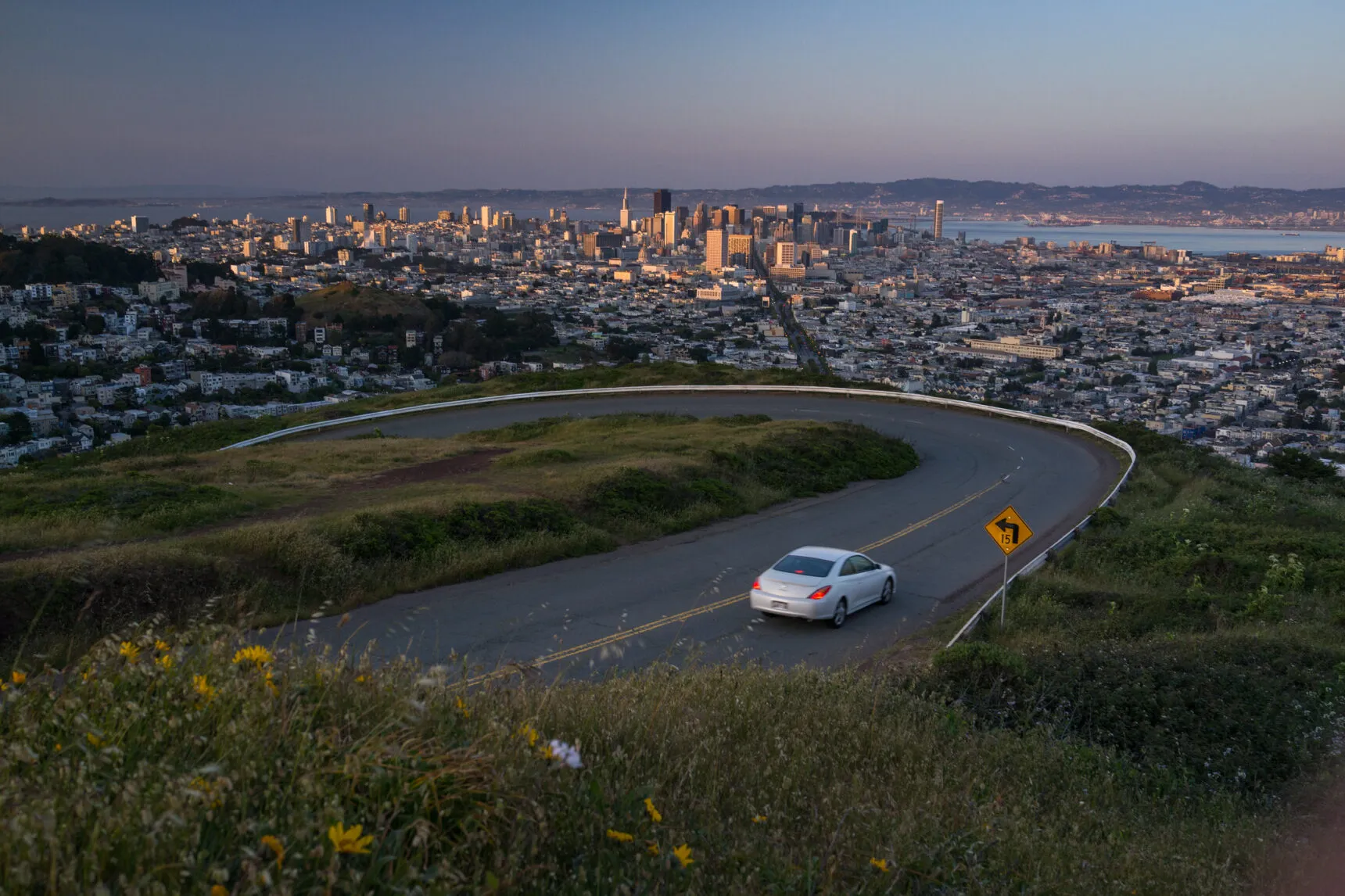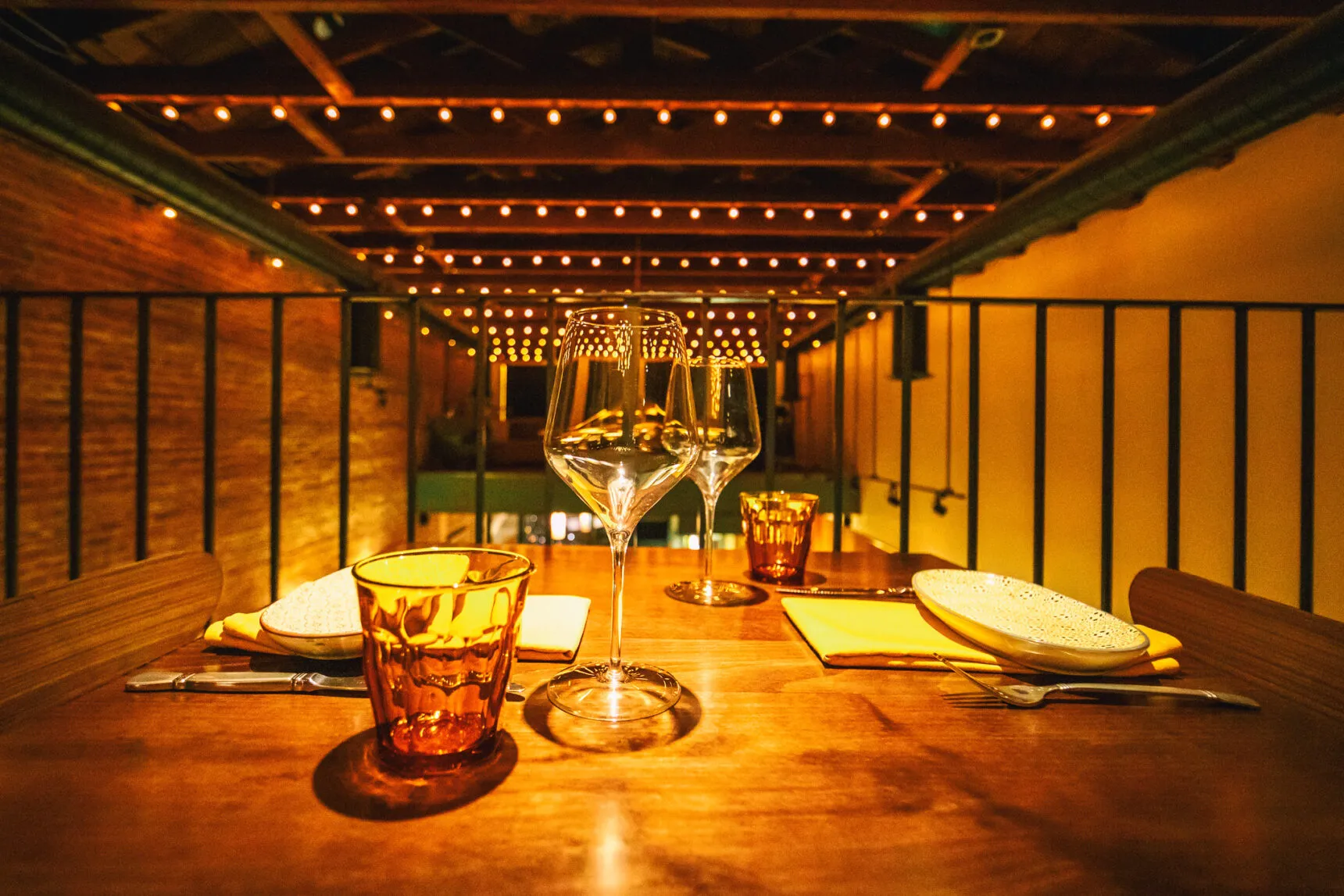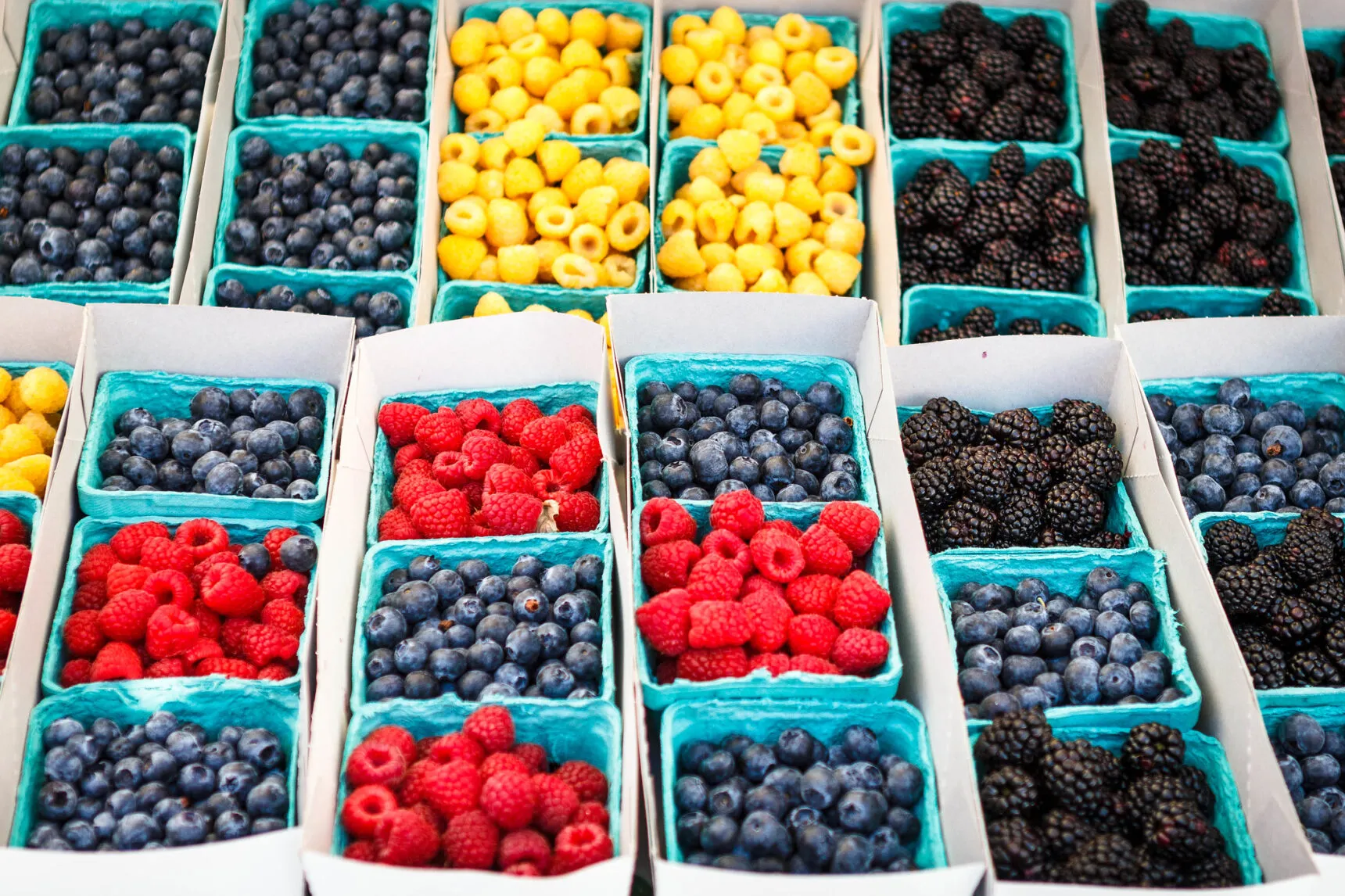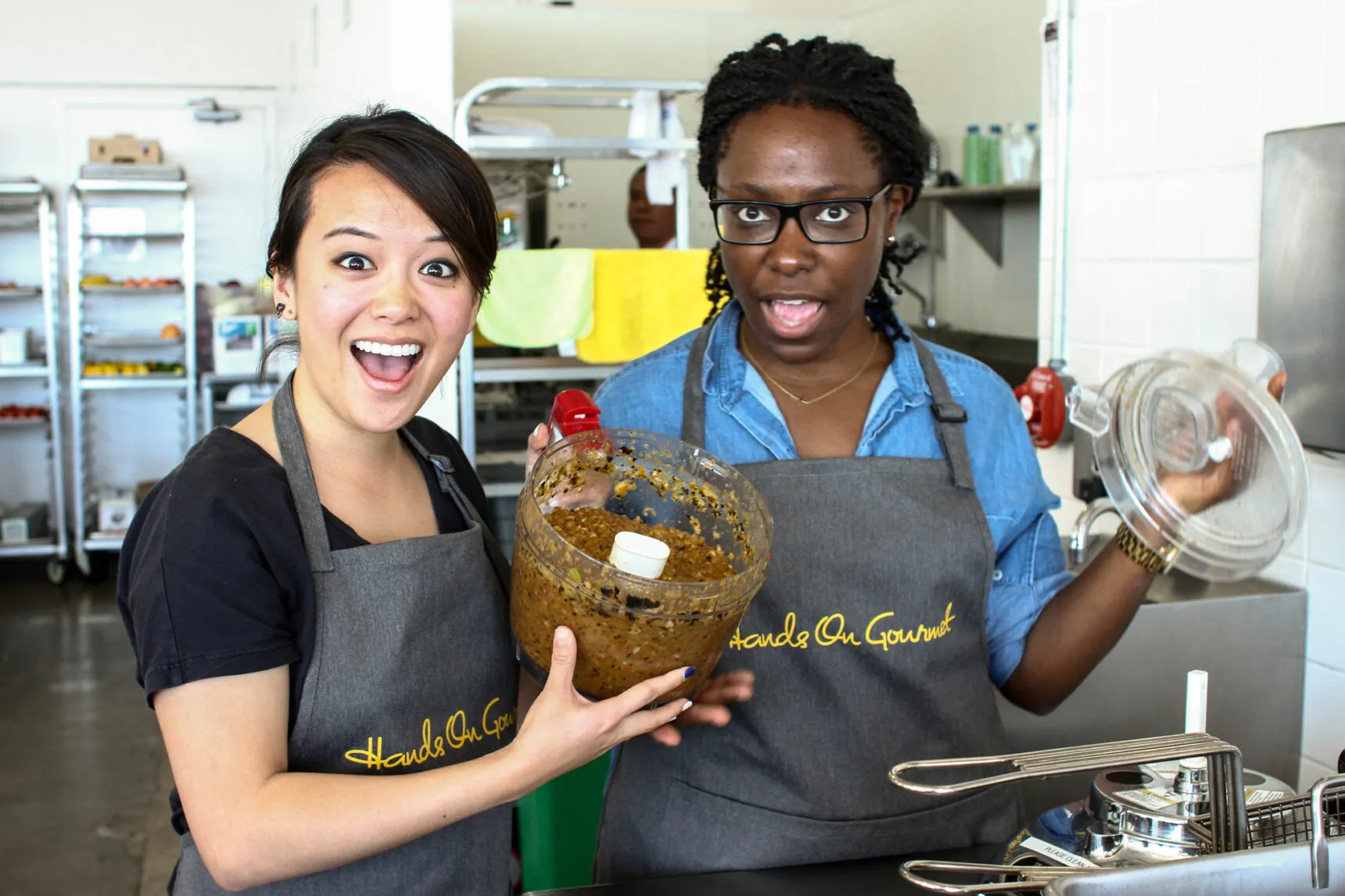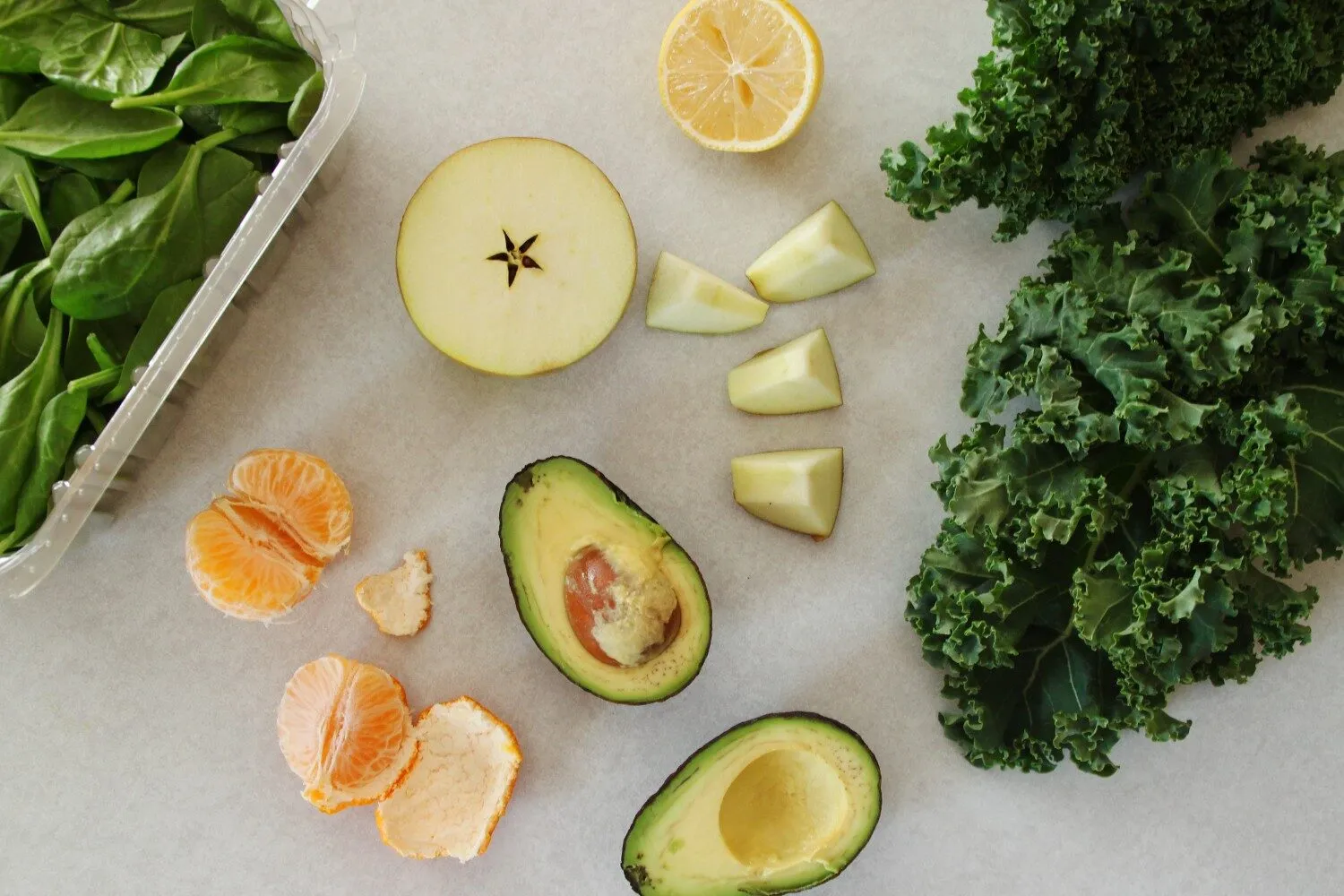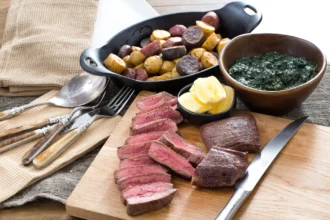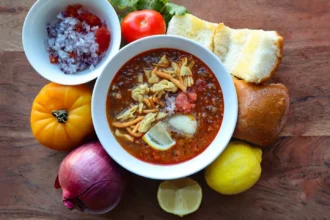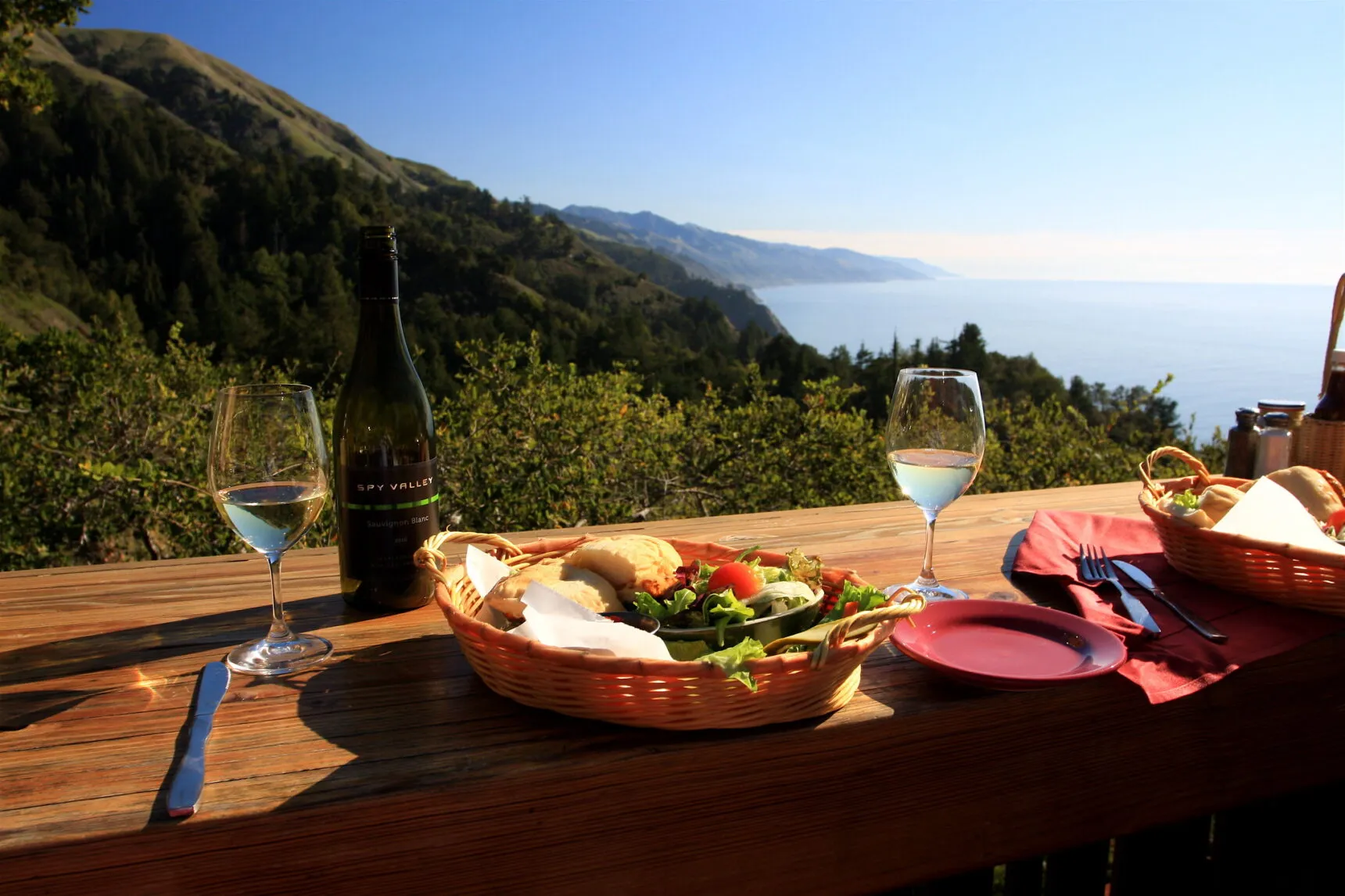Behind every memorable Bay Area meal lies a secret ingredient hunt — and locals know exactly where to find theirs. From fresh masa ground daily to sashimi-grade tuna that rivals Tokyo, these specialty markets transform home cooking into cultural exploration.
- Your Passport to Global Flavors Without Leaving the Bay
- La Palma Mexicatessen — Mission District’s Masa Mecca
- Rainbow Grocery Cooperative — Mission’s Zero-Waste Paradise
- Tokyo Fish Market — Berkeley’s Sashimi Source
- Bi-Rite Market — Mission’s Farm-to-City Pioneer
- Samiramis Imports — Mission’s Middle Eastern Treasury
- Market Hall Foods — Rockridge’s European Marketplace
- Nijiya Market — Japantown’s Organic Pioneer
- Richmond New May Wah — Clement Street’s Asian Superpower
- Oasis Food Market — Oakland’s Halal Haven
- The Gourmet Corner — San Mateo’s French Embassy
- Suruki Supermarket — San Mateo’s Sushi Secret
- Cardenas Markets — Oakland’s Festival of Flavors
- Frequently Asked Questions About Specialty Food Stores in the Bay Area
- What makes Bay Area specialty food stores different from regular supermarkets?
- Which specialty food store should I visit first as a newcomer to the Bay Area?
- Where can I find the best prices at specialty food stores?
- Do these specialty stores offer prepared foods for quick meals?
- What’s the parking situation at these specialty food stores?
Your Passport to Global Flavors Without Leaving the Bay
Forget Whole Foods — these 12 specialty stores hold the keys to authentic global cuisine. Whether you’re tracking down pomegranate molasses at 9pm or need fresh-ground masa for weekend tamales, this guide reveals where Bay Area’s diverse communities actually shop.
Each store on this list passed our test: Would a grandmother from that culture approve? From worker-owned co-ops championing zero waste to family mills grinding corn the Mesoamerican way, these aren’t just stores — they’re cultural institutions keeping traditions alive.
Quick Summary
La Palma Mexicatessen — Mission District’s Masa Mecca
Every morning at La Palma, dried corn transforms into gold through nixtamalization — the ancient Mesoamerican alchemy that unlocks nutrients and creates that distinctive masa flavor no bag of flour can replicate. This family operation has been the Bay Area’s masa lifeline since 1953, grinding GMO-free corn varieties including white, blue, and even cactus-infused options.
Behind the counter, women slap tortillas by hand with hypnotic speed while the carnitas — some of SF’s most authentic — glisten nearby. Pro tip: Call ahead on Saturdays to reserve masa for tamales; by noon, the weekend warriors have usually cleaned them out. Their sweet strawberry and cinnamon masa opens up dessert tamale possibilities most home cooks never imagine.
Insider Intel at La Palma
Details for La Palma
Rainbow Grocery Cooperative — Mission’s Zero-Waste Paradise
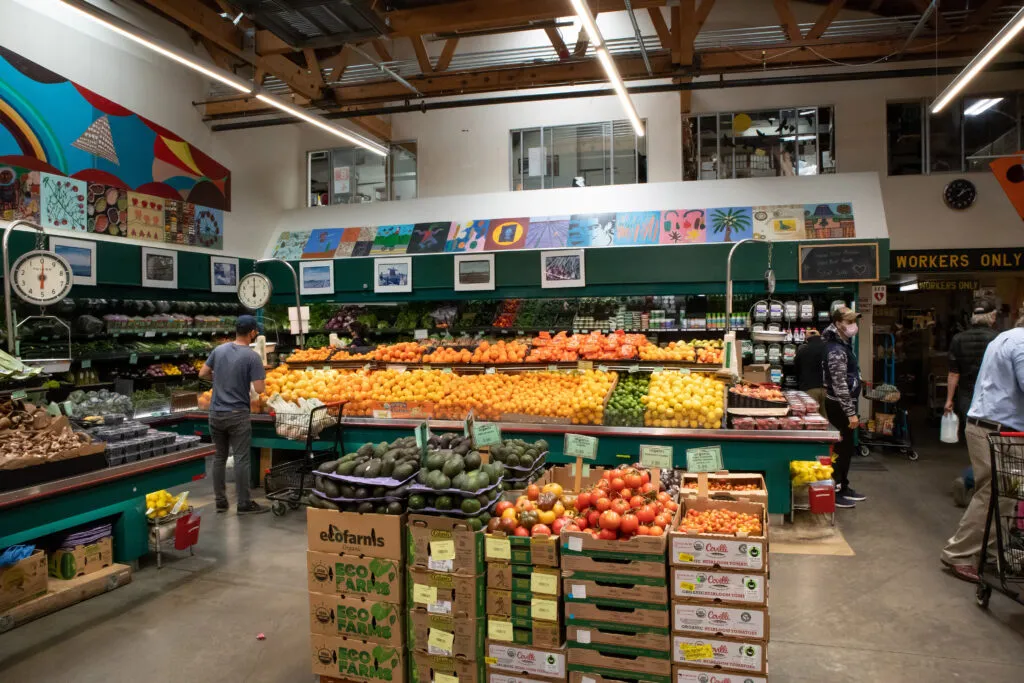
Step into Rainbow and enter a parallel universe where grocery stores run on consensus, workers own the business, and you can buy tahini by the tablespoon. This 100% vegetarian cooperative has been challenging Big Grocery since 1975 with its radical commitment to sustainability and community ownership. The bulk section alone spans an entire wall with over 800 items from Rancho Gordo beans to twelve types of miso paste.
The cheese counter deserves its own pilgrimage — international varieties aged to perfection by mongers who remember your name and preferences after three visits. Don’t miss the wet bulk area where you can fill containers with everything from tamari to maple syrup. Weekday mornings mean shorter lines and time to chat with staff about which water buffalo milk cheese pairs with your sourdough starter.
What Locals Know at Rainbow
Details for Rainbow Grocery
Tokyo Fish Market — Berkeley’s Sashimi Source
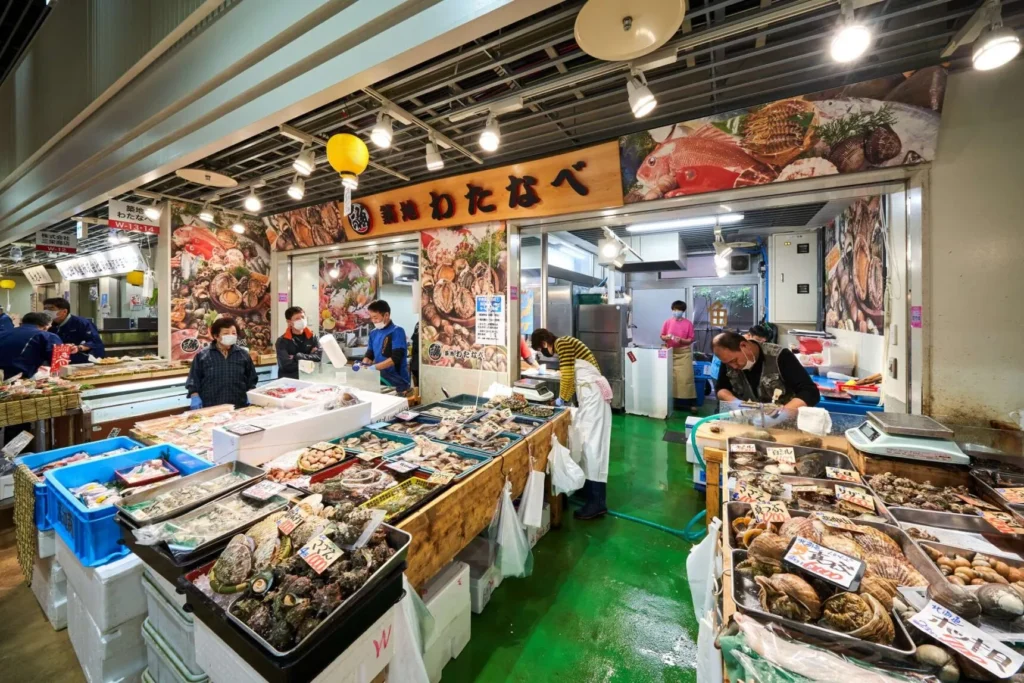
Since 1963, Tokyo Fish Market has been the East Bay’s undisputed champion of sashimi-grade seafood. The 5,000-square-foot space might stock Japanese candies and pantry staples, but everyone comes for the fish counter where experts slice otoro and uni with the precision of Tokyo’s Tsukiji veterans. This isn’t browsing territory — it’s where serious home sushi chefs source fish that rivals what you’d find at Michelin-starred restaurants.
The staff knows their craft cold, advising whether today’s hamachi works better as sashimi or if the salmon’s oil content suits nigiri. Saturday mornings see lines of regulars who wouldn’t dream of buying fish anywhere else. While other Japanese markets offer fish sections, Tokyo Fish Market built six decades of reputation on this single, unwavering focus: the finest raw fish in Northern California.
Pro Tips for Tokyo Fish Market
Details for Tokyo Fish Market
Bi-Rite Market — Mission’s Farm-to-City Pioneer
When chef Sam Mogannam transformed his family’s 1940s corner store in 1998, he created something revolutionary: a neighborhood grocery that sources like a restaurant. Today, Bi-Rite partners with 50+ California farms, creating produce sections that change daily based on what’s perfect right now. Their famous sandwiches aren’t just lunch — they’re edible manifestos for the local food movement, built with Acme bread and Cowgirl Creamery cheese.
The magic extends beyond sourcing. Bi-Rite’s kitchen crew starts at 4am preparing Market Bowls and seasonal salads that sell out by 2pm. Across the street, their ice cream shop churns flavors like Balsamic Strawberry using Straus organic dairy — worth the perpetual line. As a B Corp since 2015, they fund 18 Reasons cooking school, proving a grocery store can anchor both stomachs and community.
The butcher counter showcases whole-animal commitments to sustainable ranchers, while shelves feature impossible-to-find local products like Che Fico sauces. During stone fruit season, the produce section becomes a master class in ripeness — peaches sorted by eating window, from “tonight” to “this weekend.” Staff actually tastes everything, so asking “what’s good?” yields educated enthusiasm, not sales pitches.
Insider Moves at Bi-Rite
Details for Bi-Rite Market
Samiramis Imports — Mission’s Middle Eastern Treasury
Walking into Samiramis feels like teleporting to a Jerusalem market — the air thick with za’atar and sumac, shelves lined with pomegranate molasses in five brands, and a back corner where fresh halva gets sliced to order. Since 1972, this Palestinian-owned institution has been the Bay Area’s essential source for authentic Middle Eastern ingredients, from Turkish coffee ground while you wait to flat kebab skewers that actually work.
The olive bar alone merits pilgrimage — over 20 varieties swimming in perfect brine alongside wheels of sheep’s milk cheese and containers of tahini so fresh it pours like cream. Their house-made baba ghanoush achieves that deep smoky flavor home cooks chase but rarely catch, while the muhammara balances walnuts and Aleppo pepper into spreadable magic. Local cooking school Culinary Artistas sources ingredients here, validating its authenticity.
What Locals Order at Samiramis
Details for Samiramis Imports
Market Hall Foods — Rockridge’s European Marketplace
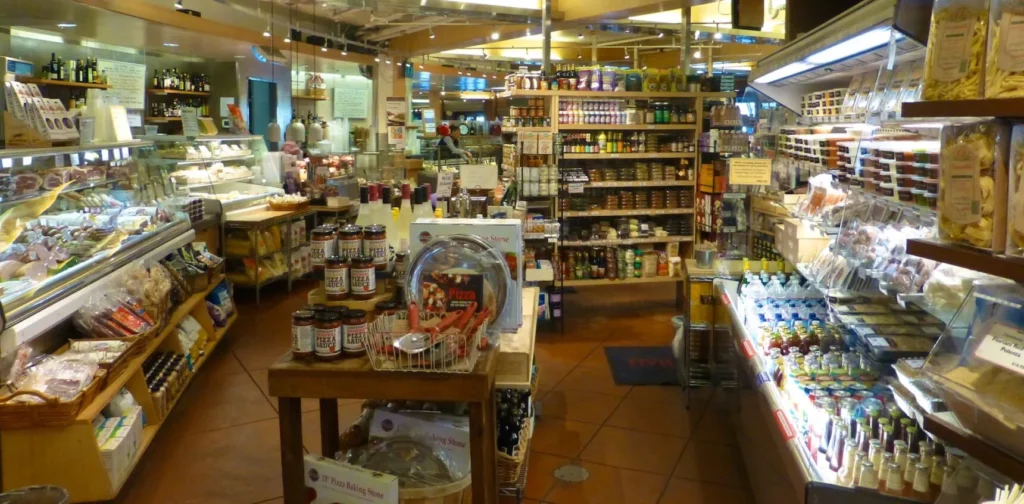
Directly across from Rockridge BART sits Oakland’s answer to a European food hall — Market Hall Foods anchors a collection of specialty merchants under one roof. Born as The Pasta Shop, they still hand-roll pappardelle daily, but the evolution into full-scale gourmet grocer created something extraordinary. The cheese counter alone employs traveling mongers who source 200+ varieties, each stored at perfect humidity until your order gets wrapped in special paper that extends life at home.
The kitchen starts cooking at dawn, producing dozens of seasonal dishes from Curried Lentil Coconut soup to weekend-only Harissa Chicken Skewers. Everything follows strict sourcing rules: antibiotic-free proteins, sustainable seafood, local when possible. The prepared foods section reads like a restaurant menu because former restaurant chefs develop the recipes. Come Saturday morning for fresh pasta making demonstrations — kids love watching sheets transform into ribbons.
Local Secrets for Market Hall
Details for Market Hall Foods
Nijiya Market — Japantown’s Organic Pioneer
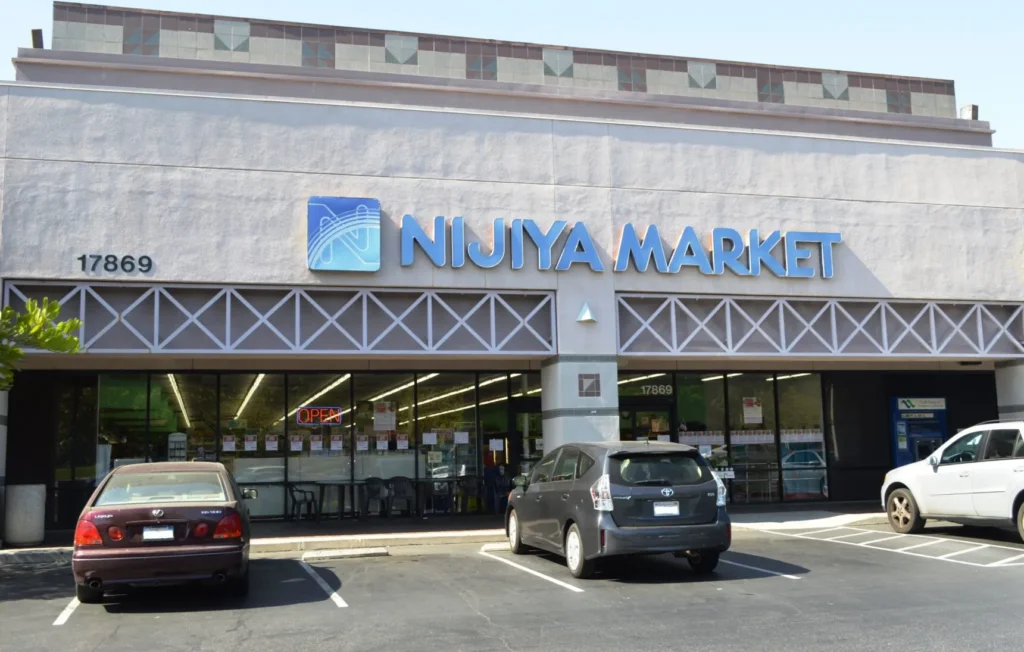
Long before “organic” became marketing gold, Nijiya pioneered clean Japanese groceries with a 100-acre farm growing shungiku, mitsuba, and goya using traditional methods. Their rainbow logo symbolizes bridging Japanese quality with American accessibility — a mission they’ve pursued since 1986. The Japantown location stocks over 100 Nijiya Brand products meeting strict additive-free standards, from Sacramento Valley rice to naturally fermented natto.
While the sashimi counter meets Tokyo standards, Nijiya’s real innovation lies in making Japanese home cooking accessible. Their ready-to-eat section spans dozens of bento variations and fresh onigiri that sell out by afternoon. The private label products remove guesswork — if it says Nijiya, it’s organic, traditional, and actually tastes like what Japanese grandmothers remember. Even their instant curry uses real vegetables, no mysterious powders.
Insider Intel at Nijiya
Details for Nijiya Market
Richmond New May Wah — Clement Street’s Asian Superpower
This Clement Street giant embodies “if we don’t have it, you don’t need it” — sprawling aisles packed with ingredients from every Asian cuisine imaginable. The seafood department alone justifies the trip: tanks bubbling with live Dungeness crab, rockfish swimming lazily, and staff who’ll kill and clean your selection while you shop. The adjacent BBQ counter draws lines for glossy roast duck and char siu that rivals any Chinatown restaurant.
Where boutique stores curate, New May Wah overwhelms with choice — 20 brands of soy sauce, entire freezer aisles of dumplings, produce ranging from standard bok choy to exotic dragonfruit. Prices beat any competitor, especially for bulk buying. Saturdays turn the place into organized chaos as families stock up, but that energy is part of the appeal. For anyone cooking Asian cuisine seriously, this is command central.
Pro Tips for New May Wah
Details for Richmond New May Wah
Oasis Food Market — Oakland’s Halal Haven
Steps from Oakland Islamic Center, Oasis serves dual duty as the East Bay’s largest Halal market and a destination for exceptional Middle Eastern prepared foods. Owner Osman Othman brought East Jerusalem expertise when opening in 2009, hiring pastry chefs who craft baklava and kunafa using traditional methods. The hot food counter draws lunch crowds for shawarma wraps and lamb kebab plates that transport you to Telegraph Avenue’s own Little Middle East.
Beyond the aromatic prepared foods, shelves stock everything from Palestinian olive oil to proper Turkish coffee ibriks. The butcher counter offers full Halal certification with cuts ranging from everyday ground lamb to house-made merguez sausages. Their fresh bread selection — tandoori, Afghan, and pita — emerges warm from ovens throughout the day. For iftar shopping or weekend grilling, this is the Bay Area’s Halal headquarters.
Insider Moves at Oasis
Details for Oasis Food Market
The Gourmet Corner — San Mateo’s French Embassy
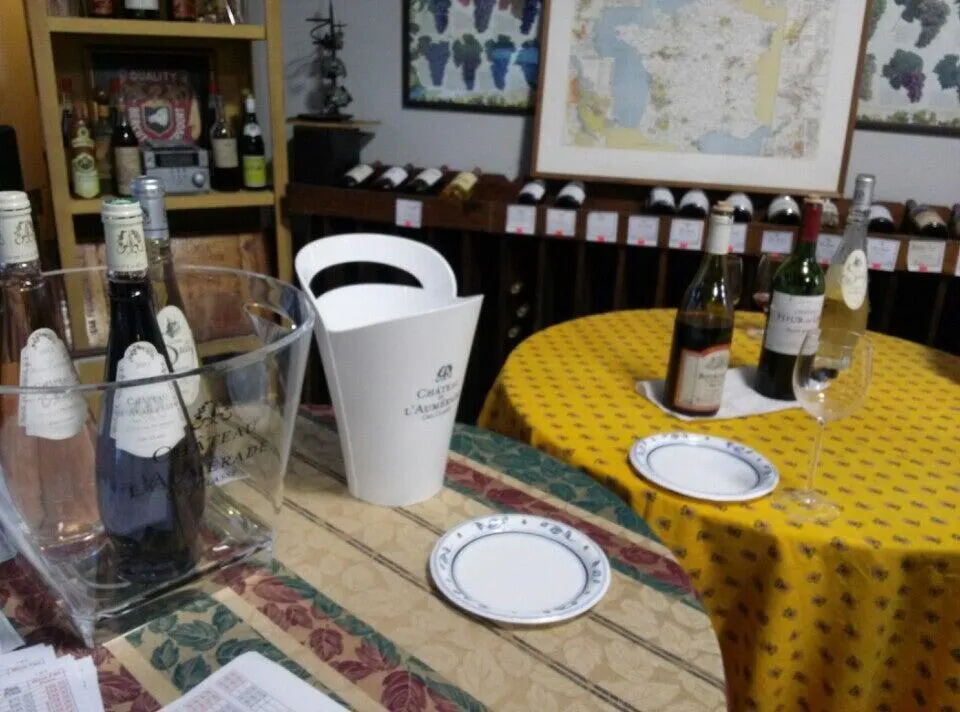
When Made in France warehouse sales ended, devastated Francophiles gained this daily sanctuary. Owner Hugues de Vernou ships directly from France, creating Peninsula’s most authentic French pantry. Shelves overflow with Normandy butter, proper Dijon mustard, and duck confit in cans — ingredients that transform home cooking into bistro fare. The frozen section hides treasures like authentic croissants and baguettes that bake up indistinguishable from Parisian originals.
The wine selection deserves special mention — exclusively French, intelligently curated, shockingly affordable. Most bottles fall between $8-12, covering Bordeaux to Burgundy without the usual markup. De Vernou takes special orders too, with cheese shipments arriving biweekly and wine monthly. For anyone attempting coq au vin or hosting Bastille Day, this corner shop eliminates compromises. Even the cornichons are correct.
What Locals Know at Gourmet Corner
Details for The Gourmet Corner
Suruki Supermarket — San Mateo’s Sushi Secret
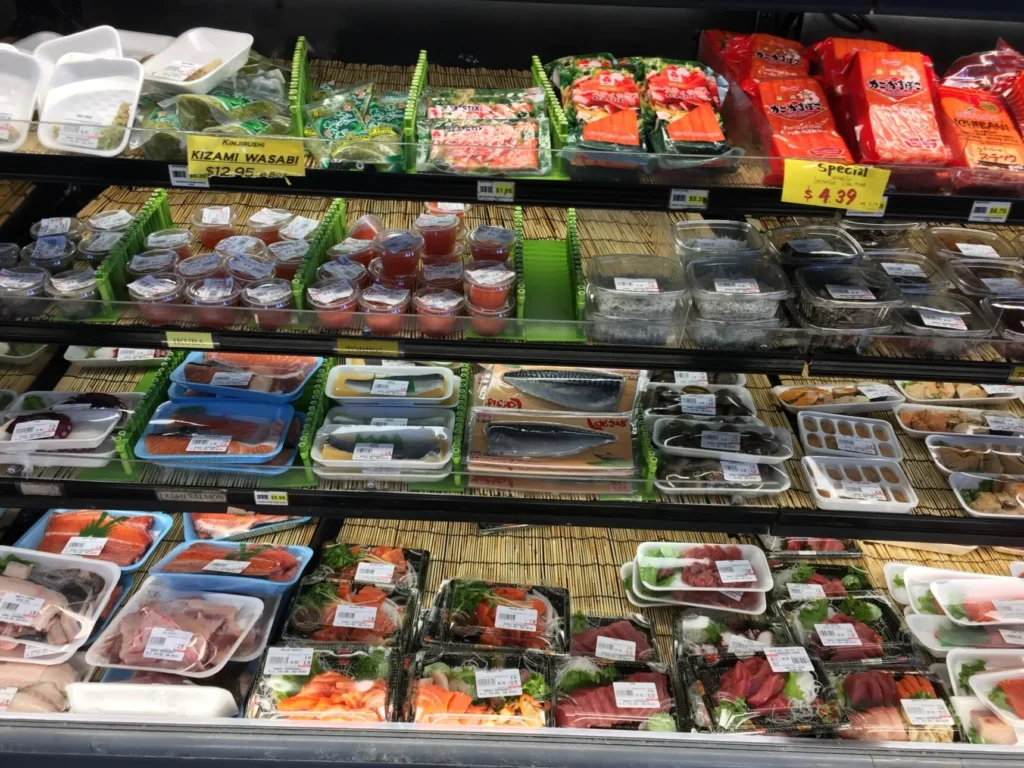
Suruki’s origin story reads like immigrant determination manifest — founder Shuji Suruki drove a grocery truck door-to-door in 1974, serving Japanese families from San Francisco to Salinas. Today, Peninsula locals guard this downtown San Mateo gem jealously, lining up before the 10am opening for bento boxes that disappear by noon. The sashimi rivals high-end restaurants at neighborhood market prices — uni and otoro quality that makes $30 omakase spots nervous.
The “Sozai Corner” produces over 20 bento varieties daily, from traditional salmon teriyaki to contemporary California fusion. But the real magic happens at the fish counter, where staff cut sashimi to order with knife skills honed over decades. Customizable party platters feed Silicon Valley celebrations, while the grocery aisles stock Watsonville-grown Japanese vegetables and locally made tofu. For Peninsula Japanese families, this isn’t just shopping — it’s cultural preservation.
Local Secrets for Suruki
Details for Suruki Supermarket
Cardenas Markets — Oakland’s Festival of Flavors
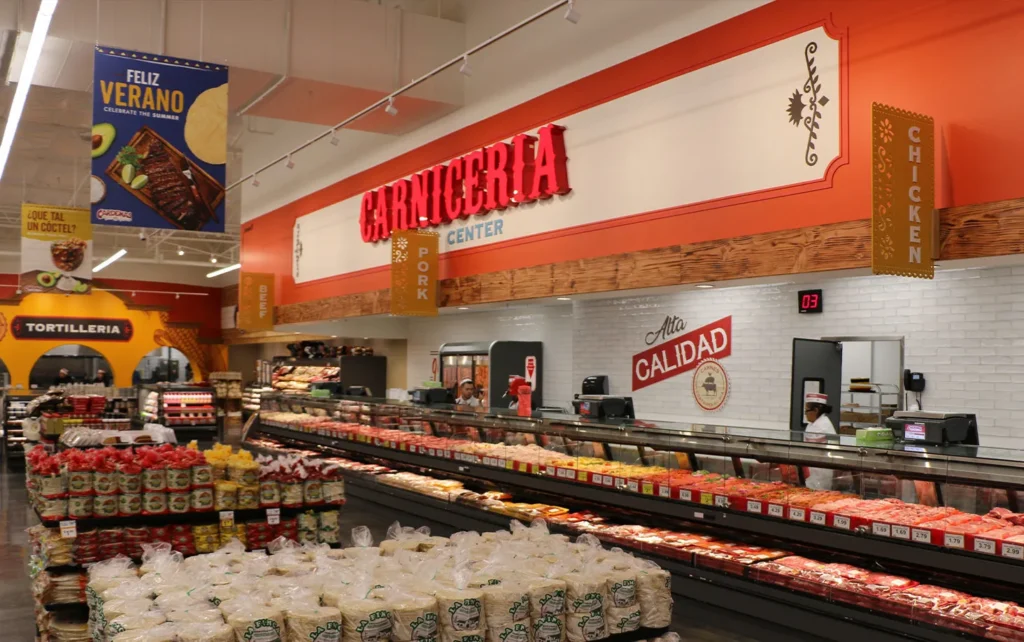
Shopping at Cardenas feels like crashing the neighborhood’s best party — cumbia music pumping, fresh tortillas rolling off machines, and the smell of carnitas drawing crowds to the Cocina. This isn’t just grocery shopping; it’s cultural immersion where the Oakland location on High Street serves as community cornerstone. The carniceria alone spans 50 feet of case space, with marinated options from traditional carne asada to innovative pineapple-habanero chicken.
Four integrated departments recreate a Mexican market square under one roof. The Tortilleria produces thousands of corn and flour tortillas daily — grab them still warm at 3pm. The panaderia fills cases with conchas, empanadas, and tres leches cakes decorated for any celebration. Through the Cardenas Foundation, they’ve donated hundreds of thousands to local causes, proving community commitment beyond commerce. Saturday mornings transform into family events with samples, music, and weekend meal planning.
Insider Intel at Cardenas
Details for Cardenas Markets
Frequently Asked Questions About Specialty Food Stores in the Bay Area
What makes Bay Area specialty food stores different from regular supermarkets?
Bay Area specialty stores offer authentic ingredients you can’t find at Whole Foods — think fresh masa ground daily at La Palma, sashimi-grade fish at Tokyo Fish Market, or 800+ bulk items at Rainbow Grocery. Each store specializes deeply in specific cuisines with knowledgeable staff who actually use these ingredients.
Which specialty food store should I visit first as a newcomer to the Bay Area?
Start with Rainbow Grocery in the Mission — it’s a cultural experience beyond shopping. The worker-owned co-op showcases the Bay Area’s values with incredible bulk selection, international cheeses, and zero-waste shopping. Plus, their “Helping Hands” program offers income-based discounts.
Where can I find the best prices at specialty food stores?
Richmond New May Wah offers unbeatable Asian grocery prices, often 20-30% below competitors. Cardenas Markets has excellent deals on Hispanic ingredients. For bulk organic items, Rainbow Grocery’s prices beat packaged equivalents by 30-50% when you bring your own containers.
Do these specialty stores offer prepared foods for quick meals?
Yes! Bi-Rite Market has chef-made sandwiches and seasonal salads. Suruki and Nijiya offer fresh sushi and 20+ bento varieties. Cardenas has hot Mexican food counters, while Oasis serves Middle Eastern plates. Most prepared foods sell out by mid-afternoon, so visit early.
What’s the parking situation at these specialty food stores?
Parking varies dramatically. Mission stores like La Palma and Bi-Rite have street parking only — easier after 10am. Rainbow Grocery has a free lot. Peninsula shops like The Gourmet Corner offer easy strip mall parking. Richmond New May Wah is nearly impossible on weekends — try the 6th Avenue garage.
The Bay Area’s specialty food stores aren’t just places to shop — they’re cultural embassies, community anchors, and keepers of culinary traditions. From La Palma’s morning masa ritual to Tokyo Fish Market’s pristine sashimi counter, each store offers a passport to authentic global cuisine without leaving the Bay.
Whether you’re tracking down pomegranate molasses for a dinner party or building your zero-waste pantry at Rainbow Grocery, these 12 markets transform grocery shopping from chore to adventure. Save this guide for your next culinary treasure hunt — your taste buds will thank you.
Ready to explore more? Discover our guides to Bay Area farmers markets and San Francisco’s best bakeries for the complete local food experience.


